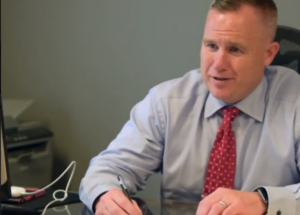By David Wilkening, Contributing Writer

REGION – If you’re considering bankruptcy, there are a lot of lawyers in Massachusetts who can help. And many offer free consultations to help you decide if you need professional advice. In general terms, what is your situation if you’re thinking about it?
Making the decision
“It depends on the individual case and how much money you owe. You can’t generalize too much,” said Anna Shapiro, chief executive officer, owner and founder of the Boston-based Shapiro Law Group.
You can file for bankruptcy on your own. But mainly because it is complicated, attorneys are not the only group recommending you get legal advice.
Some lawyers who specialize in bankruptcy have more detailed suggestions of when older adults should consider asking for professional help.
“When you are on a fixed income and you can’t pay your monthly bills,” said Massachusetts attorney Thomas Benner, is when bankruptcy should be considered.
Benner has been handling bankruptcies for more than 20 years. He said many cases involve older adults who often are strapped financially by credit card debt.

Photo/Submitted
He agrees with many lawyers who make the point that every individual situation is unique. His firm of Benner & Weinkauf on its website says bankruptcy of debt relief might be considered under two circumstances: credit card debt is equal to at least 50 percent of an individual’s income, and the credit card debt will not be paid off in five years―even if an effort is being made to reduce monthly expenses.
Older adults might consider asking for legal advice when they’re on a fixed income with “very little left over after paying their expenses,” said George J. Nader, who has 25 years’ experience specializing in bankruptcy law and other areas. He is with the firm of Riley & Dever, which has offices in Plymouth, New Bedford and other areas.
Many of his clients are seniors who are often overwhelmed with debt in part because they have good intentions. They may have problems because they are financially helping out children or grandchildren.
When not to declare bankruptcy
There are pros and cons for debt-ridden seniors to declare bankruptcy. Nader’s firm calls it “getting a fresh start.” A major detraction is the harm to credit scores. The major advantage of declaring Chapter 7 bankruptcy―the most common type of options―is to eliminate most but not all debts. What is called a court “discharge” releases individuals from debts such as credit cards. But there are many exceptions to that―such as student loans, recent taxes, alimony and others. Many law firms make the point that those stipulations are arguments in favor of hiring an attorney. The price of a personal attorney in Massachusetts ranges from $1,100 to $1,700 with most costing about $1,400, according to legal sites.
Nolo, a legal advice site, says there are two situations when not to file for bankruptcy. One is when there is nothing a creditor can take. “Creditors aren’t allowed to take the things needed to maintain a home, such as household goods, a modest car, Social Security funds and many retirement accounts,” the site says.
Those are many things already owned by seniors, making them “judgment proof.” So filing for bankruptcy is not necessary.
The second situation is when someone has too many assets to benefit from bankruptcy. “When you own property and income that isn’t protected from creditors, filing for bankruptcy might not be a good idea,” according to Nolo, which has been publishing legal guides for more than 50 years.
On the other hand, bankruptcy can work for seniors if they can exempt or protect all or most of their property and if they can give up or discharge enough to make filing for it worthwhile.
Low-income legal service offers assistance
Greater Boston Legal Services helps more than 10,000 low-income families and individuals every year solve non-criminal legal problems. Its website points out that in Massachusetts bankruptcy filings do not require individuals to appear in court. But state law does require a meeting with creditors, though that is not a major factor. Such meetings are usually quick, involving a few questions about bankruptcy forms and an individual’s own financial situation.
It also stresses that bankruptcy frees individuals from most debts, stopping home foreclosures or auto repossessions and other matters. “It can’t fix every problem. It’s not the right choice for everyone,” it warns, however.
Impact and other options
Debt consolation programs are another option to bankruptcy. But both Benner and Nader say they have not seen much success for those programs.
They also say with all the financial considerations of bankruptcy, one other factor is not measured in dollars and cents. It is the psychological impact.
“I see it less in people in their 50s and 60s but for those in their 70s and older, it’s a strange dynamic. It may be a last resort but they don’t want to do it. It’s a psychological thing,” Benner said, with some thinking they were failures because of it.
Nader regards federal and state bankruptcy laws as very fair, sympathetic to those needing help and overall part of a “very good and smooth-running system.”
“Bankruptcy helps rehabilitate people. The way to look at it is that it’s just a tool,” he affirmed.












